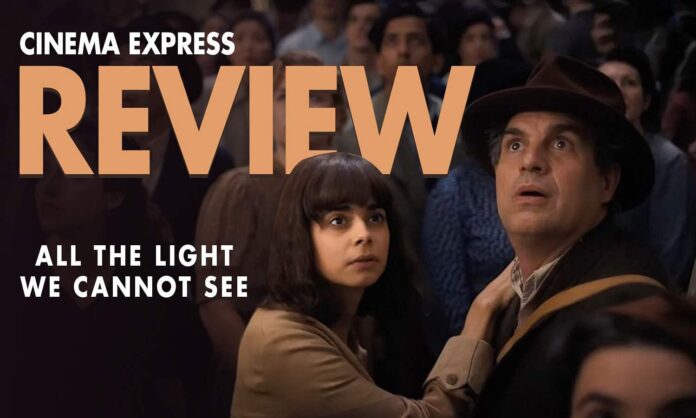War stories have a certain beat to them. It is not only chambered with a cluster of emotions but also carries a weight of history that can evoke a sense of wonder, guilt, remorse, and what not depending on which side of the history you are from. The Book Thief was one such story that focussed on a girl whose love for literature and worldly knowledge mattered to her the most, even if she was at the centre of a Nazi-occupied World War II era of brutality. The film adaptation of The Book Thief left a haunting impression through these characters, rather than just amplifying the outside world’s injustice. The bombs were just peripheral actors, and the war cry was just a background score with the internal conflicts of emotions taking centrestage. But, unfortunately, the same cannot be said about Netflix’s latest adaptation of Pulitzer Prize-winning All The Light We Cannot See (ATLWCS) by Anthony Doerr. Set against the very same war backdrop, this time in the German-occupied coastal city in France, ATLWCS fails to make a real connection, despite its characters showing true potential.
Director: Shawn Levy
Cast: Aria Mia Loberty, Louis Hofmann, Hugh Laurie, Mark Ruffalo, and others
Streamer: Netflix
ATLWCS boils down to two main characters: Marie Laure, a blind French girl who is sending broadcasts through her radio every night from her attic, and Werner Pfennig, a forced German soldier, who is on the other end of listening to her with enthusiasm, even if he is supposed to oust them and serve the Nazis. There are plenty of grand war sequences that make us give this Netflix adaptation a big thumbs up on the production side. It almost feels real that these effects add up and bring out the brutality of the war, with its beautifully lit, and majestically mounted frames. But it fails to evoke emotions, despite having two characters that can have plenty of layers and emotional heft considering the circumstances. In a moment when Marie and Werner, whose connection begins long before they meet, share a tender moment of love, it never prompts us to be happy for them, instead relegating it to just a seemingly forced addition to methodically place a kiss in the story of war-torn individuals. The acting doesn’t help either.
While the series consists of four almost one-hour episodes, the emotions of these characters do not resonate, barring one particular scene of a young Marie being guided by her father through the streets of the French village to the museum he works at, by means of both a city miniature and real locations. The scene is enacted beautifully, gently supported by production design, but it is just a one-off. Soon enough, the scene is ruined when the father overtly romanticises his daughter’s disability.
Told in a non-linear sequence, there are moments of tenderness shared between the leads, but none of them stay long enough. Instead, what we get are half-baked narratives, a messy turn of events, and uni-dimensional characters. Despite the high stakes considering the premise, ATLWCS never really converts the promise to anything.
ATLWCS fails to properly execute the mammoth task of adapting a story of strong and layered characters, and limits itself to barebones staging of circumstances that lead to the happenings of the narrative. In the process, the show neither attempts to build a world, nor humanise the lives that once went through the trial of one of mankind’s deadliest turns in history.
#Wry #clumsily #staged #adaptation #war #story #Cinema #express

